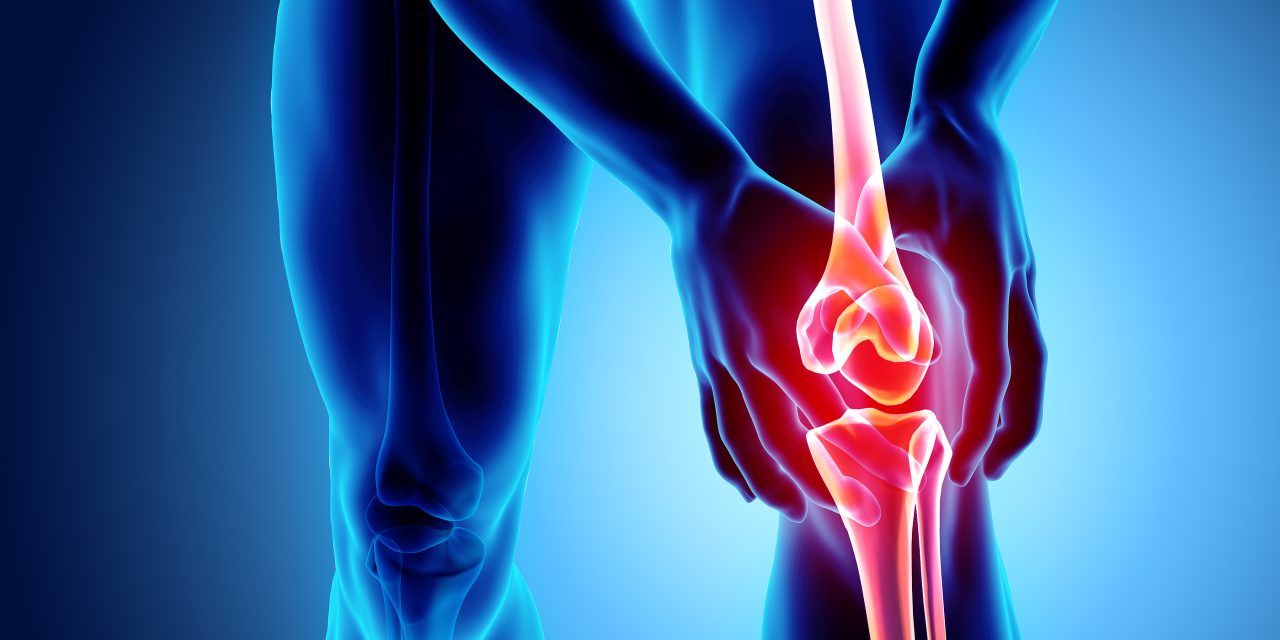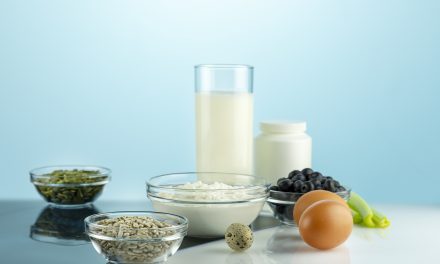Arthritis is a common condition that leads to joint pain, stiffness, and inflammation, affecting millions of people worldwide. It can significantly hamper daily activities and quality of life. With the growing interest in complementary and alternative medicine, many individuals with arthritis are turning to dietary supplements in hopes of finding relief. Supplements for arthritis aim to support joint health, reduce inflammation, and alleviate pain.
Though there is no cure for arthritis, certain supplements have been identified as potentially beneficial. It’s important to understand that supplements should complement, not replace, conventional medical treatments for arthritis. Omega-3 fatty acids, for example, are known to help reduce joint inflammation. Herbal supplements, including those derived from turmeric and ginger, show promise due to their anti-inflammatory properties. Other supplements like glucosamine and chondroitin sulfate are widely used with varying degrees of reported success.
Supplements containing collagen, MSM, and hyaluronic acid are also frequently used to support joint structure and function. As research on the efficacy of these supplements continues, it’s crucial for consumers to prioritize safety and choose high-quality products. Not all supplements are created equal, and some can interact with medications or have side effects. Consulting with healthcare providers is essential for those considering supplements for arthritis management.
Key Takeaways
- Supplements are sought after for their potential to alleviate arthritis symptoms but should not replace primary treatments.
- Omega-3s, herbal extracts, and compounds like glucosamine and chondroitin can offer joint support.
- Safety and product quality are crucial when selecting supplements for arthritis.
Understanding Arthritis
Arthritis is a term that encompasses more than 100 conditions affecting joints, the tissues surrounding joints, and other connective tissues. The most common forms are osteoarthritis (OA) and rheumatoid arthritis (RA).
- Osteoarthritis involves the wear-and-tear damage to joint’s cartilage, which can result in bone grinding directly on bone, causing pain and restricted movement. This wear and tear can occur over many years, or it can be hastened by a joint injury or infection.
- Rheumatoid Arthritis is an autoimmune disorder where the body’s immune system attacks its own tissue, including joints, and potentially internal organs.
Symptoms can range from mild to severe, and may include:
- Pain
- Stiffness
- Swelling
- Redness
- Decreased range of motion
Risk factors contributing to arthritis include family history, age, gender, previous joint injuries, obesity, and certain occupations that put repetitive stress on a joint. While arthritis is more common among adults aged 65 and older, it can affect people of all ages, including children.
There is currently no cure, but several treatments can help manage the symptoms. These include medications, physical therapies, lifestyle changes such as diet and exercise, and in some cases, surgery. Early diagnosis and appropriate management are important to minimize symptoms and improve quality of life.
Nutritional Foundations for Joint Health
A balanced intake of essential vitamins and minerals plays a significant role in maintaining joint health and managing arthritis symptoms. These nutrients support structural integrity and function of joints.
Essential Vitamins
- Vitamin D: Crucial for calcium absorption, it aids in maintaining bone density and joint health.
- Sources: Sunlight, fatty fish, fortified foods.
- Vitamin C: Important for the formation of collagen, a key component of cartilage.
- Sources: Citrus fruits, bell peppers, strawberries.
Minerals and Trace Elements
- Calcium: Essential for bone strength and structure.
- Sources: Dairy products, leafy greens, fortified foods.
- Magnesium: Involved in bone formation and balancing bodily enzymes.
- Sources: Nuts, seeds, whole grains.
- Omega-3 Fatty Acids: Although not a mineral or trace element, omega-3s contribute to reducing inflammation.
- Sources: Fish oil, flax seeds, chia seeds.
Each nutrient can be taken in supplement form if directed by a healthcare provider, taking into consideration the need based on dietary restrictions or deficiencies.
Omega-3 Fatty Acids and Joint Inflammation
Omega-3 fatty acids are widely recognized for their anti-inflammatory properties. These essential nutrients, commonly found in fish oil, flaxseed, and walnuts, play a crucial role in reducing inflammation associated with arthritis.
Sources of Omega-3:
- Fatty fish (salmon, mackerel, sardines)
- Flaxseeds
- Walnuts
- Fish oil supplements
Researchers have discovered that omega-3 fatty acids can inhibit the production of enzymes that erode cartilage and reduce the level of compounds causing inflammation in the body. Clinical studies suggest that taking omega-3 supplements may help alleviate joint pain and stiffness in individuals with rheumatoid arthritis.
Dosage Recommendations:
The American Heart Association recommends eating two servings of fatty fish per week. For those who consider supplementation, it’s important to consult with a healthcare provider for appropriate dosing, as the requirement may vary based on individual needs and underlying health conditions.
Potential Benefits:
- Reduction in joint pain
- Decreased stiffness
- Improved joint mobility
It’s important to understand that while omega-3 supplements can be beneficial, they may interact with other medications and can have potential side effects. They should be taken under the guidance of a healthcare professional, ensuring that the right balance is achieved to maximize the therapeutic effects on joint health.
Herbal Supplements for Arthritis
Arthritis patients often turn to herbal supplements to help manage inflammation and pain. These natural remedies can complement conventional treatments.
Turmeric/Curcumin
Turmeric contains curcumin, a compound with potent anti-inflammatory properties. Studies suggest that taking curcumin supplements may help reduce pain and inflammation associated with arthritis. Recommended dosages typically range from 500 to 2,000 mg of turmeric extract daily, standardized to include 95% curcuminoids.
- Form: Capsules, powders, teas
- Usage: Often taken in divided doses throughout the day
Ginger Extract
Ginger is another spice noted for its anti-inflammatory effects. It may relieve arthritis symptoms by reducing swelling and pain. For arthritis relief, a common dosage is 250 to 500 mg of ginger extract twice daily.
- Form: Capsules, tablets
- Usage: Recommended to be taken with food to avoid stomach upset
Boswellia Serrata
Known as Indian frankincense, Boswellia serrata has been traditionally used to treat inflammatory conditions. Its active components, boswellic acids, are thought to suppress inflammation and aid in pain reduction. Effective doses have been cited as 100 to 250 mg of boswellic acids, taken daily.
- Form: Resin, capsules, creams
- Usage: Variable depending on the product form; follow manufacturer’s instructions
Glucosamine and Chondroitin Sulfate
Glucosamine and chondroitin sulfate are supplements commonly used to manage the symptoms of arthritis. They are especially noted for their role in maintaining joint health and potentially repairing cartilage.
Evidence Supporting Glucosamine
Glucosamine is a natural compound found in cartilage, the tough tissue that cushions joints. Studies have suggested that glucosamine supplements may help with osteoarthritis pain and improve joint function.
- Pain reduction: Some research indicates a modest reduction in knee pain for individuals with osteoarthritis who use glucosamine.
- Joint function: It can enhance joint mobility and slow the progression of osteoarthritis in some people.
Chondroitin for Cartilage Repair
Chondroitin sulfate is another naturally occurring substance in the cartilage. It helps retain water for better joint flexion and aids in the repair of damaged cartilage.
- Cartilage repair: Chondroitin may assist in the rebuilding of eroded cartilage.
- Synergistic effect: When combined with glucosamine, chondroitin could potentially amplify the benefits regarding joint health and pain alleviation.
Collagen Supplements and Arthritis
Arthritis patients often seek out natural supplements to support joint health. Collagen is a protein that’s key to the structure of our cartilage and is thought to have a role in managing arthritis symptoms.
Types of Collagen Supplements:
- Hydrolyzed Collagen: Also known as collagen peptides, they are easily absorbed.
- Type II Collagen: Particularly associated with cartilage, beneficial for joint discomfort.
Efficacy:
Studies suggest that collagen supplements may help reduce arthritis symptoms. Collagen may contribute to cartilage repair and reduce inflammation.
Usage Guidelines:
- Dosage: Varies by product; follow manufacturer’s instructions or consult a healthcare provider.
- Consistency: Daily intake over a period of a few months is recommended for optimal results.
Safety Profile:
Collagen supplements are generally considered safe for most people. However, check for potential allergens and discuss with a healthcare provider if you have pre-existing conditions.
Research Insights:
- Collagen may help decrease joint pain.
- Evidence points towards improved function with long-term use.
It’s important to approach collagen supplementation with realistic expectations and understand that results may vary among individuals.
Methylsulfonylmethane (MSM) Benefits
Methylsulfonylmethane, or MSM, is a sulfur-containing compound often used as a dietary supplement for its various health benefits. In the context of arthritis, MSM is reputed to have several potential benefits that may aid in mitigating the condition’s symptoms.
MSM is thought to have anti-inflammatory properties which can result in the reduction of joint inflammation, a common issue in arthritis sufferers. This can lead to a decrease in pain and swelling, potentially improving joint mobility.
The compound also appears to contribute to the maintenance of joint and cartilage health. By possibly aiding the repair of fibrous tissue and promoting the formation of collagen, MSM helps maintain the elasticity and flexibility of joint tissues.
Scientific research points to MSM as playing a role in modulating the immune system, which may be beneficial in autoimmune types of arthritis, like rheumatoid arthritis, where the body’s immune response is against its own joint tissues.
Reported Benefits of MSM in Arthritis:
- Reduction of joint inflammation
- Decrease in pain and swelling
- Improvement in joint mobility
- Support in maintenance of joint and cartilage health
- Modulation of the immune system
While MSM is generally considered safe, it is important for individuals to consult healthcare providers before starting any new supplement, particularly if they have existing health conditions or are taking other medications.
Hyaluronic Acid for Joint Lubrication
Hyaluronic acid is a substance naturally occurring in the human body, with a high concentration in joint tissues and the fluid that fills the joints, known as synovial fluid. Its primary function in the joints is to provide lubrication, which helps in reducing friction between the joint surfaces during movement.
Effectiveness:
Clinical studies suggest that hyaluronic acid supplements can benefit individuals with arthritis, particularly osteoarthritis. When administered as an injection directly into the joint, it can enhance joint lubrication and potentially provide pain relief and improved mobility.
Forms of Supplementation:
- Injections: Administered by healthcare providers, usually for knee osteoarthritis.
- Oral Supplements: Available over-the-counter, can be taken to support overall joint health.
Usage Guidelines:
Patients should always consult with a healthcare professional before starting any new supplement to ascertain its suitability and potential interactions with other medications.
Dosage:
The appropriate dosage can vary based on individual needs and the specific product being used. Healthcare providers will determine the injection dosage and frequency, while oral supplements should be taken according to the product instructions.
It is important to consider that while hyaluronic acid can be beneficial for joint lubrication, it may not be effective for everyone and its benefits may vary. Current evidence on the long-term effectiveness and safety of hyaluronic acid supplementation for arthritis relief is still evolving, and further research in this area continues.
Natural Anti-Inflammatory Supplements
Natural supplements can offer relief from arthritis by reducing inflammation and pain. These specific substances have been studied for their potential anti-inflammatory effects.
Bromelain
Bromelain is an enzyme found in pineapple juice and the pineapple stem. People use it for reducing swelling, especially of the nose and sinuses, after surgery or injury. Research suggests that it has anti-inflammatory properties which may reduce joint pain for individuals with arthritis.
| Bromelain | |
|---|---|
| Source | Pineapple stem and juice |
| Benefits | May reduce swelling and joint pain |
| Usage | Often taken as a supplement |
S-Adenosylmethionine (SAMe)
S-Adenosylmethionine, known as SAMe, is a compound produced naturally in the body. It has been shown to improve joint health and reduce the symptoms of osteoarthritis. As a supplement, SAMe may also offer mood-boosting properties.
| SAMe | |
|---|---|
| Production | Naturally occurring in the body |
| Benefits | Improves joint health, may relieve osteoarthritis symptoms |
| Usage | Available in supplemental form |
Safety and Side Effects of Supplements
When considering supplements for arthritis, it is crucial to understand their safety profiles and potential side effects. Glucosamine and chondroitin, widely used for osteoarthritis, are generally well-tolerated but can cause mild gastrointestinal upset in some individuals.
Fish oil, high in omega-3 fatty acids, may interact with blood-thinning medications, increasing the risk of bleeding. Patients should monitor for symptoms like easy bruising or nosebleeds.
Here’s a breakdown of common supplements and their potential side effects:
- Glucosamine and Chondroitin
- Nausea
- Diarrhea
- Heartburn
- Fish Oil
- Fishy aftertaste
- Gastrointestinal discomfort
- Potential interaction with blood thinners
- Curcumin (Turmeric)
- Stomach upset
- Risk of increased bleeding if taken with blood thinners
- May lower blood sugar in diabetes
- MSM (Methylsulfonylmethane)
- Headache
- Itching
- Insomnia
- Boswellia
- Acid Reflux
- Skin rashes
- Potential impact on liver enzymes
Each individual may react differently to supplements. Those with chronic conditions or who are pregnant should consult their healthcare provider before beginning any supplement regimen. It is vital to purchase supplements from reputable sources to ensure quality and avoid contaminants. Just as with prescription medications, adherence to recommended dosages is important to minimize risks associated with supplements for arthritis.
How to Choose Quality Supplements
When selecting supplements for arthritis, consumers should evaluate several essential factors to ensure they are purchasing high-quality products.
Ingredients: A product’s label should list all active and inactive ingredients. Supplements should contain evidence-based ingredients such as glucosamine, chondroitin, and omega-3 fatty acids, which are known to support joint health.
Certification: Look for supplements that have been certified by third-party organizations, such as USP (United States Pharmacopeia) or NSF International. These certifications indicate that the product has been independently tested for quality and purity.
| Third-Party Certification | Indicates |
|---|---|
| USP | Verified quality, potency, and purity |
| NSF International | Product tested to meet high-quality standards |
Reputation: Consider the manufacturer’s reputation in the industry. Established brands with a long history of quality products tend to be more reliable.
Transparency:
- Ingredient sourcing: Manufacturers should be transparent about where they source their ingredients.
- Manufacturing processes: High-quality supplements are typically produced in facilities that follow Good Manufacturing Practices (GMP).
Product reviews and expert opinions: Reading reviews and seeking expert opinions can provide insights into a supplement’s effectiveness and credibility. However, one should differentiate between genuine user experiences and promotional content.
Dosage and form: The supplement should come in a form that allows for easy administration and consistent dosing. Accurate dosage information on the label is crucial for efficacy and safety.
_Reminde_r: Always consult with a healthcare provider before starting any new supplement regimen, especially for individuals with arthritis, to ensure it does not interfere with existing treatments or conditions.
Frequently Asked Questions
This section addresses some of the common inquiries regarding supplements for those experiencing arthritis, focusing on effectiveness, symptom relief, pain management, and improvements in joint mobility.
Which natural supplements are most effective for joint health in arthritis?
Glucosamine and chondroitin are widely recognized for supporting joint health. Studies suggest these supplements may slow cartilage deterioration and alleviate joint pain in arthritis.
What vitamins are recommended to alleviate symptoms of arthritis?
Vitamin D and omega-3 fatty acids are often recommended to help manage arthritis symptoms. Adequate vitamin D levels are crucial for bone health, while omega-3s can reduce joint stiffness and pain.
Are there any over-the-counter products that can help with arthritis pain management?
Topical capsaicin creams and oral nonsteroidal anti-inflammatory drugs (NSAIDs) like ibuprofen are available over-the-counter and can provide temporary pain relief for arthritis sufferers.
What are the top recommended supplements to reduce inflammation in arthritis?
Omega-3 fatty acids, found in fish oil supplements, and curcumin, the active ingredient in turmeric, are acknowledged for their anti-inflammatory properties and are often recommended for arthritis.
For severe arthritis, which supplements may offer the most relief?
For individuals with severe arthritis, glucosamine and chondroitin, along with MSM (methylsulfonylmethane), are frequently suggested by health professionals to help manage severe symptoms.
Can certain supplements significantly improve mobility for arthritis sufferers?
Incorporating collagen supplements may benefit joint mobility by contributing to the maintenance and repair of cartilage, potentially leading to improved flexibility and reduced pain for arthritis patients.
Conclusion
In conclusion, the best supplements for arthritis, such as glucosamine, chondroitin, and omega-3 fatty acids, can help support joint health. It’s important to consult a healthcare professional before incorporating these supplements into your routine, especially if you have existing health conditions or are taking medications. When used in conjunction with a balanced diet and regular exercise, these supplements can contribute to managing arthritis symptoms and promoting overall joint well-being.













